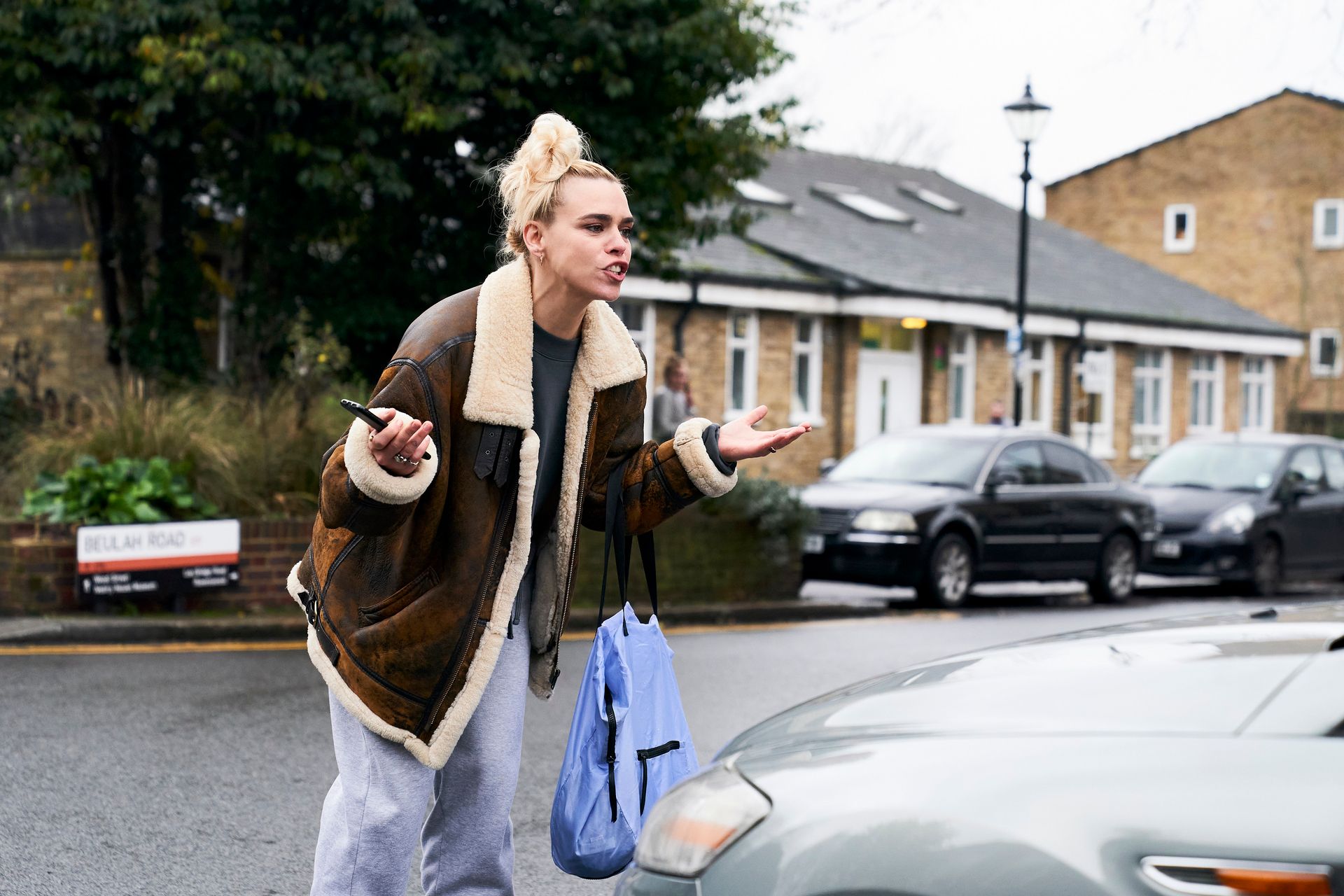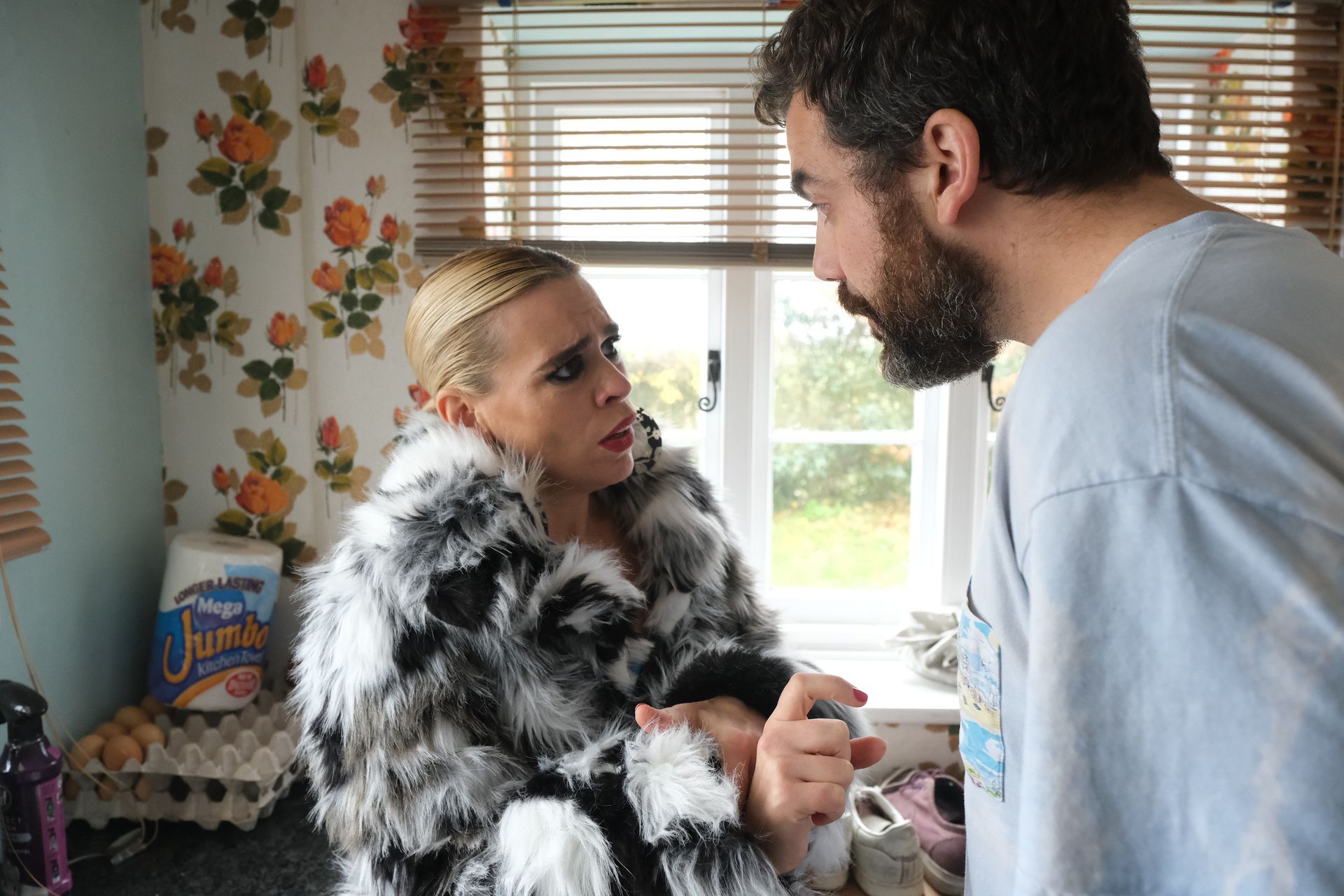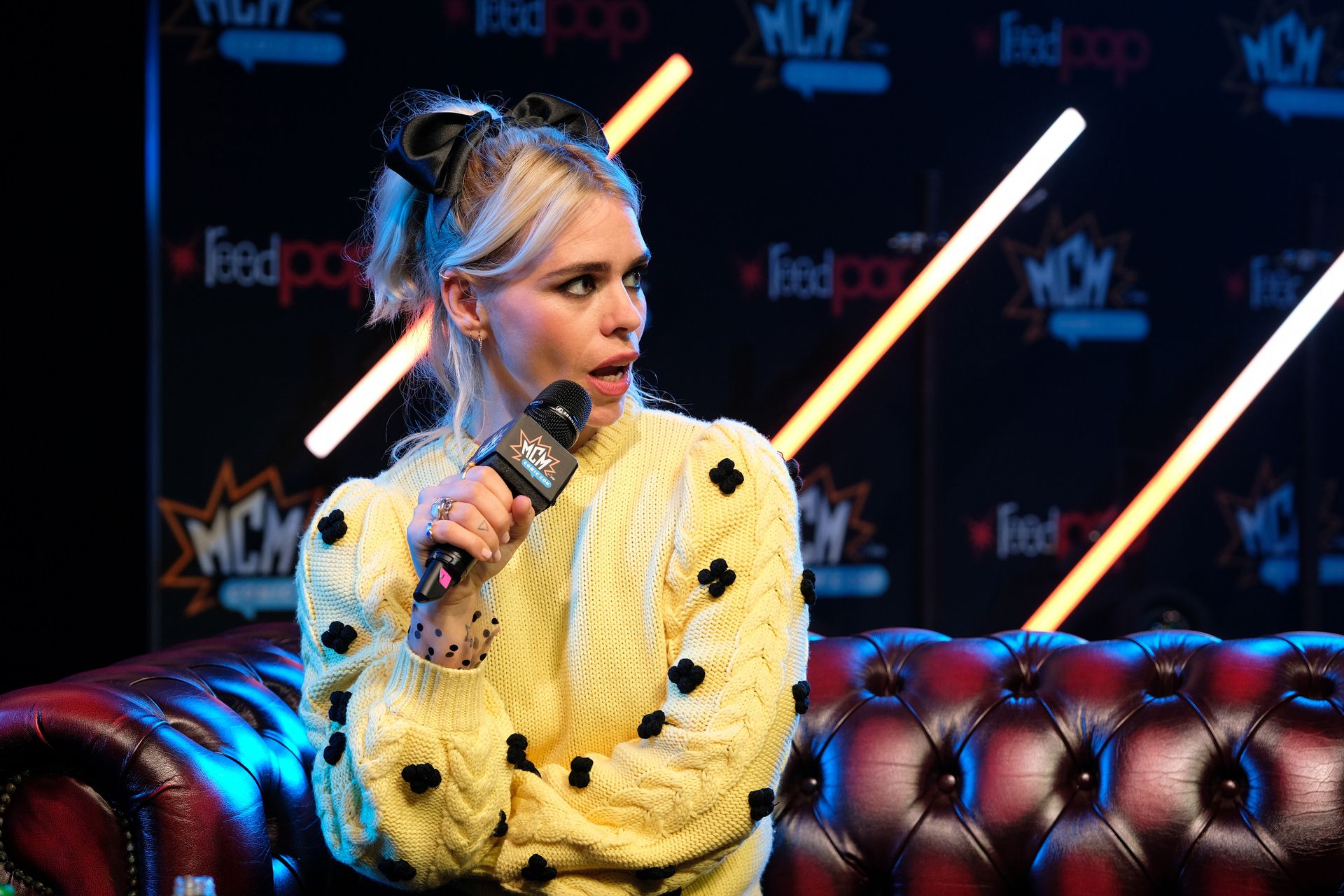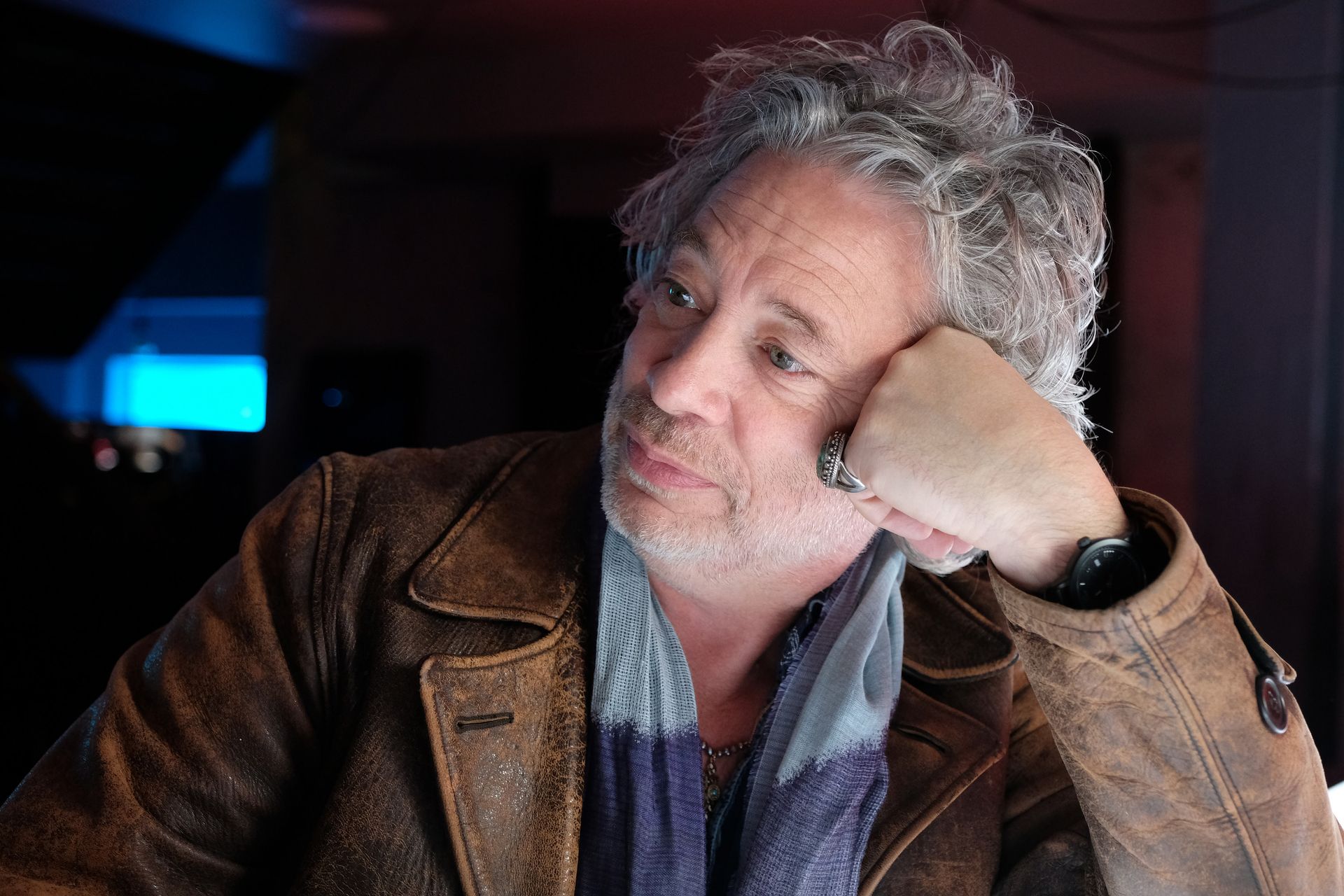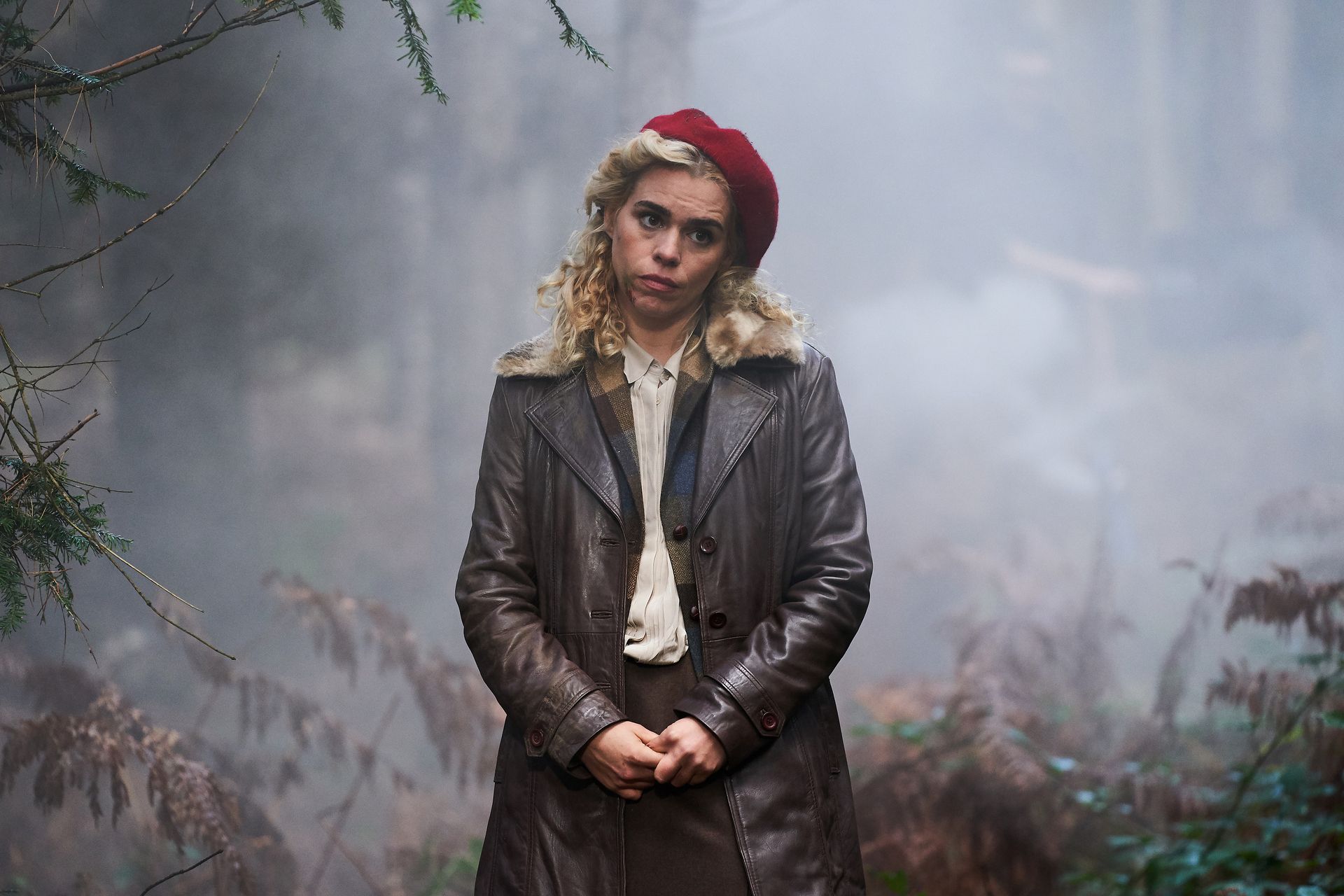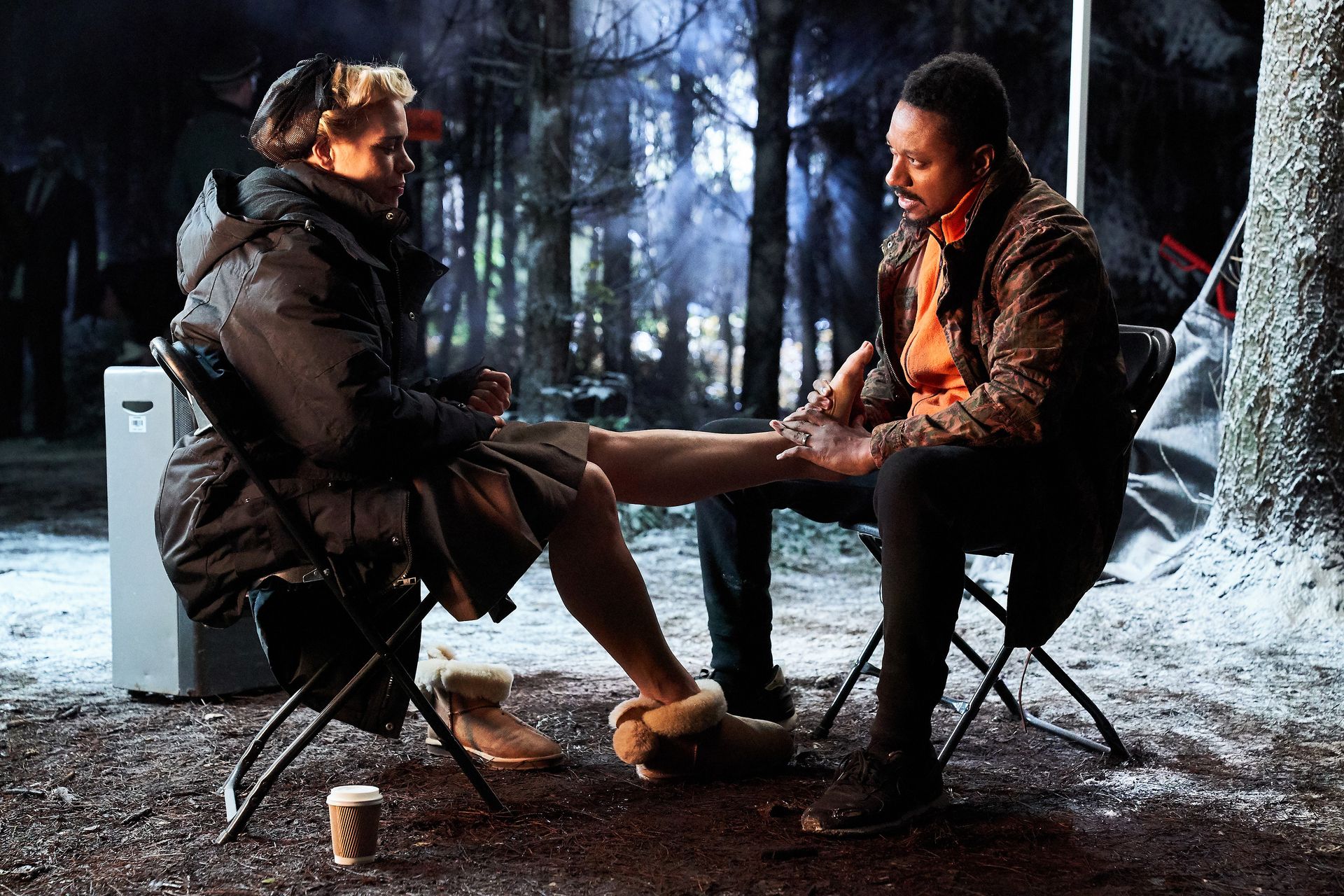A blond 30-something actress whose past projects include a short pop music career, a fan-favorite sci-fi franchise, and other TV work — yes, that describes not just Billie Piper but her latest on-screen role. And as she explained to Collider in a phone interview, that was a deliberate part of the process by which she and writer Lucy Prebble worked together to create I Hate Suzie, an eight-part dramedy now streaming on HBO Max.
Piper and Prebble first collaborated together on the witty and addictive series Secret Diary of a Call Girl in 2007, and now they have created a searing and hilarious new portrait of a woman on the edge. We meet the titular Suzie Pickles (Piper) on one of the worst days of her life, after sexually explicit nude photos of her get released online — something, Piper notes, might happen to anyone these days. But the impact it has on Suzie's life is seismic, not just when it comes to her career, but also her relationships with her husband Cob (Daniel Ings) and best friend/agent Naomi (Leila Farzad). It all sends her spinning into a series of chaotic events, including an appearance at a British fan convention that goes top-sided.
Below, Piper addresses her current relationship with the Doctor Who universe (which she is sometimes still involved with, thanks to opportunities to reprise her role as Rose Tyler for the Big Finish audio adventures), the parallels (or lack thereof) between her career and Suzie's, and the unexpected appearance of Rocketman director Dexter Fletcher (playing a faded star on the convention circuit who Suzie connects with). The overwhelming message, as we got into while talking about her directorial debut film Rare Beasts, is that after decades of working hard with no control over her projects, she now always wants to be involved.
So, the show seems like it had a great reception in the UK.
BILLIE PIPER: Yeah, it's gone really, really well. Yeah. And not entirely expected either. I thought it would be slightly more divisive than it has proven to be. But actually, there seems to be a big outpour of love for it, which is obviously very satisfying, and is what it's all about, I guess.
Do you have a sense of where that might come from?
PIPER: I think there are things that people seem to be very strongly relating to, whether that's the personality, Suzie herself, or her sort of crisis, or the feeling of not really knowing who you are as a woman when you leave your late 20s, early 30s, and how much of a sort of crisis ... That feels like a crisis. Or certainly did for Lucy and I. And I think people seem to be really tapping into that, more specifically.
Talk to me a little bit about how it originally came together. What were the initial conversations like with Lucy?
PIPER: So Lucy and I, I've been trying to get her to do a TV show with me again for 10 years. We did a play together and then I was like, let's do a TV show. And I would go to her with ideas or adaptations I thought she could do, or might be interesting. And she said no to all of them, in her more depressive avoidant days. And it just became unavoidable, in the end, that we ought to create something together. Our instincts are incredibly similar, and our desire to talk about things that are maybe hard to receive, or not particularly palatable — that's a big driving force for us. We're really keen on honestly portraying a woman and everything that comes with that. The amount of guises and heads you have to have as a woman to attend work, to attend to being a mother, to attend to being a sexual being... So much so that there is a point where you don't even recognize yourself anymore. It's that sort of identity crisis. Those are the things that we felt determined to talk about.
Lucy found the form of the show: She came up with the idea of a hack — something that's not just happening to celebrities now, it's something that's happening to everyone. Everyone has a profile now. And so that idea of incriminating information being on your phone feels sort of universally familiar. But what we were interested in looking at more forensically is how something like that would impact a woman's life. Her emotional, psychological self, but also her intimate relationships, and her professional opportunities. And I think the fallout from that is likely to be greater than it is for a man.
And then Lucy came up with the idea of the eight stages of trauma or grief as a way to have each episode be a sort of standalone, isolated mini film. That was something we were really keen to do as well, tonally shift from episode to episode.
What does it mean to you, to be a creator on this show?
PIPER: It means everything to me, because I really see myself in this show and I've never experienced that before. Apart from my own film. And I did this play called Yerma, and that was a professional highlight for me. But I recognize my years of life, personally and creatively, in this show. And that's a new and very moving experience.
Of course, anyone familiar with your career can look at the career of Suzie Pickles and see the very clear parallels. When that idea became part of the show, what was your feeling about it?
PIPER: Well, Suzie being an actress is really sort of metaphorical, really. It's saying that thing that I was saying before, which is, you know, you don't have to be an actress to be a woman and have to approach everything with a different identity. So it was interesting to make her that. It also opened up the world a lot, because it's a very fun, absurd, colorful world. And that was really fun to dramatize. But as I said before, the idea of your phone being hacked is something that we can all relate to. So it's not, this is a story about a famous person. It's like, this is a story about a modern woman.
It's interesting — talking about the fun and absurdity of what it is to be an actor these days, were there touches that you knew immediately you wanted to include?
PIPER: Yeah, I guess so. Yeah, I like playing the more hysterical stuff. It's really fun. And it's a part of my personality that I really squash and manage in this really sort of controlling way. And so to play it felt really very satisfying.
What was it like to make the convention episode [Episode 2, "Denial"]?
PIPER: It was really fun because we basically built a convention for a show within our show. So just on a sort of geek level, we were like, this is awesome. And it was really, really fun to dramatize something that I know extremely well. And yeah, it just felt quite big. And it's just funny that she's at a convention and this enormous thing is happening to her, and the line of questioning is so awful and she's on stage and it just feels, it's just so awful, all of it. And she has no real agency in any of it. And so as much as it was fun to sort of create this convention, and that felt very familiar to me, it was also really satisfying to pull apart the more psychological things and the stress of it.
That's such an interesting aspect of it, because it does feel like there's a segment of fandom that takes for granted, oh, "actors love doing that stuff. They love getting on a stage and talking about their shows." And it's important to remember that actors are people too, and it's not necessarily the easiest emotional thing, even if you aren't going through a tremendous personal crisis.
PIPER: Yeah. Yeah. But I feel like everyone knows what it's like to be having something awful happening in your life, and you go into the world lying about how awful it is. We really wanted to do that as often as possible in the show. Because that's something we do in life. We are constantly reducing really enormous things that happen.
One thing I wanted to make sure I asked about, in terms of the convention episode, is the scenes you get to have with Dexter Fletcher. How did he get involved with the show?
PIPER: Well, we just pitched it to him and gave him a script and he was on board. And yeah, he's great because he's very loose as an actor. He's very moment to moment, and that really helped the scene. He was also really up for it. Like, he wanted to play and have fun. We were in that hotel room for two days straight doing various different awful things, and he was up for it. That's something you need in a show like this. You need someone who's ready to go and isn't going to be mannered and cautious. Someone who's just going to fucking have it.
That's great. In general, there are hints of backstory — of course, Suzie has her career, and many different projects in it. How detailed did you guys get in terms of crafting that history?
PIPER: I would say we were pretty detailed, yeah. I guess it's like a ... It's seven years of discussions. So it was, we would flesh out hard in rooms, write in rooms all over London. And quite often things that we would want to dramatize, but we've never seen it before, and could people consume that? Would that be okay? And often a lot of those things ended up in the show.
Is there a complete filmography for Suzie Pickles?
PIPER: Oh. No. We didn't do that much work. No, no. No, but I feel like there's a backstory of guys, let's say.
Oh, that's important.
PIPER: Yeah.
There are just so many details that I really enjoy about the show. Like the Nazi zombie series Suzie's currently acting in — what was the origin of that?
PIPER: Well, it's one of those shows where, it's not her big show. She's an actress on the wane, until she gets this sort of Disney opportunity. Her body of work until that point has been sort of very much B-list. And we felt like that felt like the right fit for our level of actress. It sounds really rude. It's not just that sort of very genre-y, but also kind of just mad and silly.
I mean, the honest truth is that I wouldn't be shocked if in a couple of months, somebody is legitimately making a Nazi zombie show.
PIPER: Oh, no. I'm sure. I mean, nothing is surprising anymore.
That is also a fair point. So what has I Hate Suzie made you think about, in terms of your own career?
PIPER: That I want to work with my friends. And that I only want to do work that is as meaningful as this was to me. And I'm alive to the fact that isn't going to come along very often. But it's a much more satisfying creative experience, to be as invested as this. I feel like a lot of my history, my past as an actress or a singer or whatever, I've had really no control or agency over my work, or what I want to say, or how I want to do something. And to finally get to that point is... It's just a very new feeling. And one that I would love to continue experiencing.
With a project like reprising the character of Rose for the Big Finish audios, do you feel like you have more control over those stories?
PIPER: No. No, not at all. But I feel like that is a very specific thing. And also the world of Doctor Who is very comforting and safe for me. So I know what it is. It's a family show. People love that character. But it's not something that I... I am not particularly sci-fi minded, so it's nice to go back to, but it's not something I can have much creative control in. And that's fine. It is what it is. But I think on something like that, you need to trust the people who have dedicated and have this sort of encyclopedic sci-fi knowledge. And I just am not wired that way at all.
In terms of things you are looking forward to, that you will have creative control over, what do you have in development?
PIPER: So I have a film coming out next year called Rare Beasts, which is my first directorial venture. It's my first feature. It's my first writer/director job. I'm starring in it. Yeah. It's fully, fully controlled.
That's very exciting, though. Congratulations.
PIPER: Yeah. Thank you so much. I actually made it before Suzie. So those two things sort of bounced, back to back. So it's exciting for it to come out sort of also after Suzie, actually. Because I feel like, you know, there are sorts of similar themes. And maybe it won't be such a shock now, that Suzie has sort of done all the work.
You think people will come to it understanding this is what you want to say right now?
PIPER: Yeah. I think it's quite abstract, the film. And, again, it's quite relentless. It's people behaving very badly towards each other. But it's also quite funny because of that. But it's also shot in a way that feels like a panic attack, which is how Suzie ended up feeling as well. So, yeah, I think it's sort of familiar content and maybe it will make more sense somehow, off the back of Suzie. Or maybe it won't. Maybe it will just be compared unfavorably. That's the anxiety.
In the future, do you see yourself only committing to projects, or trying to only commit to projects where you also are involved creatively, behind the scenes?
PIPER: Yeah, I think so. I think moving forward that's definitely all I want to do. And even if it's just a jobbing actor gig, you know, I'm always longing to be working very much with the director in a way that feels quite equal. That doesn't happen ... That very rarely happens. But it's always, the work is always better for it, I think, when it feels really collaborative. So as an actor, I still want to do acting jobs, but I have to have that extra investment for it to be as meaningful, I guess.
Of course. I mean, I feel like that I've heard some actor directors say that sometimes they just enjoy taking an acting job, as a break.
PIPER: Yeah. Oh, absolutely. I thought about that a lot when I was getting home and watching rushes, and commenting on the stuff for the next day, and learning lines and having a family. I just was like, just give me a straight-up acting job, where I turn up and then I leave. What you realize is how comfortable and privileged that job is.
I Hate Suzie is streaming now on HBO Max.


